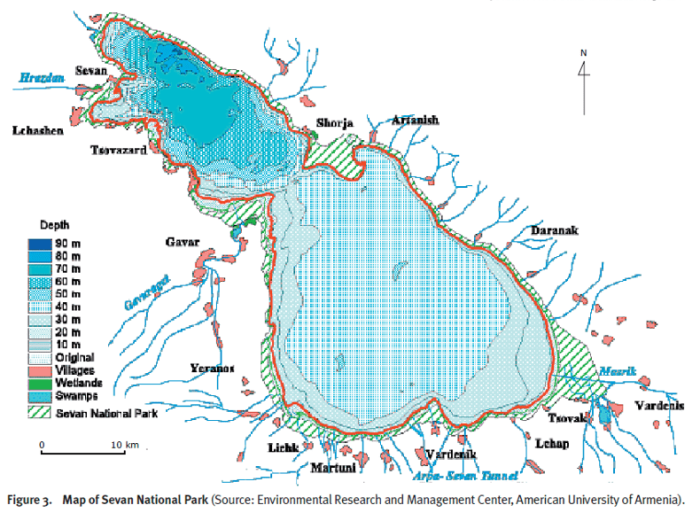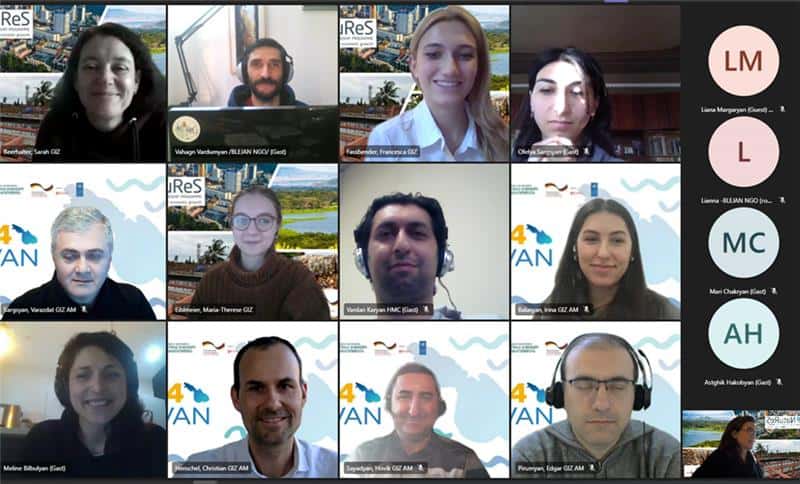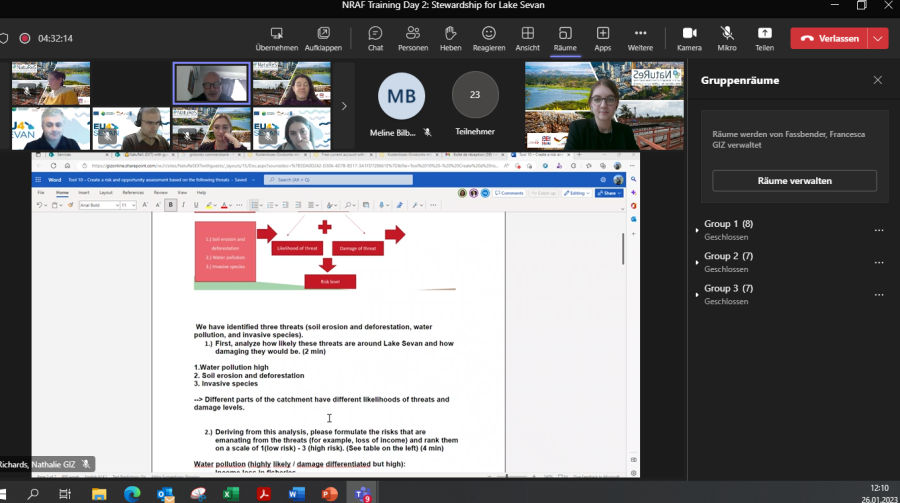Stewardship for Armenian Lake Sevan: 3-day training for cross-sectoral cooperation
The Armenian Lake Sevan is the country’s most important source of fresh water, irrigation, aquaculture, and hydropower. Armenia’s economic, social, and environmental potential is linked to the lakes’ ecological conditions. However, the lake is severely endangered by unsustainable water management, pollution, rising water demands, environmental degradation, and climate change.
Lake Sevans’ crucial functions are impeded by unsustainable water management
Recognizing Lake Sevan’s socio-economic and environmental importance and the necessity to manage better this essential natural resource, stakeholders from Armenians’ public, private sector, and civil society decided to join forces. They sought guidance on how to effectively build multi-stakeholder partnerships to improve natural resources management around Lake Sevan collectively.

Enabling collective action to address water issues
From the 25th – 27th of January 2023, NatuReS, on behalf of the program ‘Environmental Protection of Lake Sevan’ (EU4Sevan), conducted a three-day online training for 24 participants. The training was about natural resources stewardship and collective, cross-sectoral action. The aim was to enable stakeholders to jointly set up a partnership for improved environmental management of Lake Sevan.

Interactive exercises and showcasing of the Natural Resources Risk and Action Framework
The participants were introduced to the NatuReS guiding framework to set up and accompany stewardship partnerships, the Natural Resources Risk and Action Framework (NRAF) By testing a set of NRAF tools within interactive breakout room discussions, they practiced the development of their own multi-stakeholder partnership around Lake Sevan.
Trainees’ exchanged perspectives and analyzed joint risks
Throughout the event, the participants exchanged their knowledge and perspectives on risks affecting their different sectors. Putting themselves in the situation of another sector, the participants discover joint risks resulting from the pollution and mismanagement of resources around the lake. Trainees, for example, discussed water pollution as leading to health risks, income losses for fishermen and tourism, and public dissatisfaction, among others. This displays, that while water pollution affects all sectors, it leads to different risks. They can be operational, reputational or regulatory, for the different sectors. This in the past has often represented a hurdle for coming up with good solutions. However, only by addressing challenges across sectors can effective solutions be developed, implemented and maintained in the long term.

A foundation for a partnership at Lake Sevan
Participants were also trained in best practices to ensure efficient division of responsibilities for their future partnership based on NatuReS approach. The training created a foundation for the participants to identify relevant stakeholders and set up their own partnership.
NatuRes thanks all participants and the EU4LakeSevan team for the productive days and the exciting insights into the environmental situation in Armenia. We wish them success in their future endeavors!